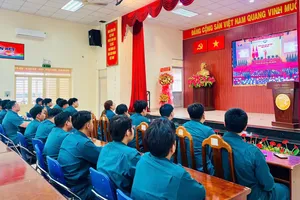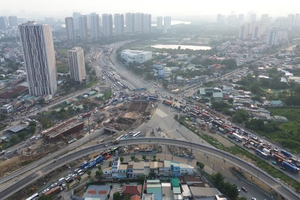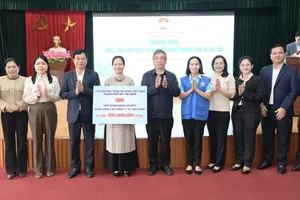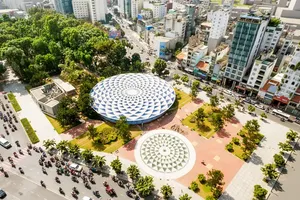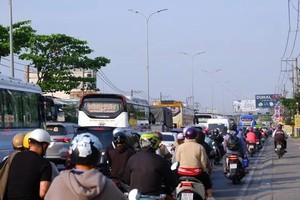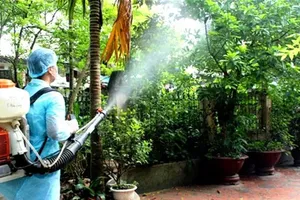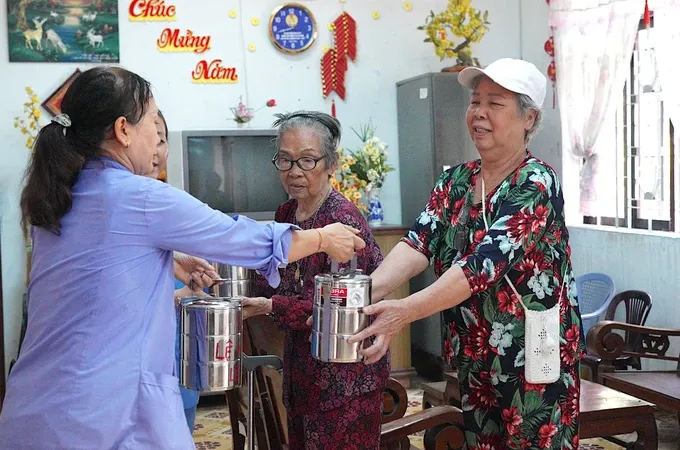
After his wife had passed away, 73-year-old Le Hong Hiet from Thai Binh Province felt truly depressed at home. His children then successfully persuaded him to move to Thu Duc City in HCMC with them for better care. Initially, Hiet did experience a happier life because he was employed as a security guard in a primary school nearby and was frequently surrounded by small children.
Sadly, after three years, when he became unemployed, he could do nothing but to stay home feeling crammed inside four cold walls of his child’s apartment. Even at night when his grandchildren were back home, they refused to communicate with him; instead, they each use their smartphones for their own interests. He then decided to return to his hometown for a more comfortable life, accepting that he would be a bit lonelier.
A different story comes from 70-year-old Huynh Hieu Dung from Ben Tre Province and now living in Tan Phu District of HCMC. Finance matters are not a problem to him since his children from abroad regularly send money to support him. Yet he frequently faces loneliness because his children only come back to visit him once in a while. Therefore, he now opts to work for one nephew in Tan Binh District just to have more contacts with others.
65-year-old Nguyen Thi Thu from Ben Cat Town of Binh Duong Province shared that she accepts her loneliness for the sake of freedom as she does not want to bother her child’s family, who once wished that she could come to HCMC for better care. She commented that she could not get used to urban life after the whole time living in the comfort of the countryside.
“Grandpa, are you feeling better today? Do you enjoy your meal?”, asked nurse Tran Van Hieu kindly to Tran Van Hieu, a member in Thanh Loc Care Center for Paralyzed People in District 12 of HCMC. The attentive care of the nurse has made Hieu feel more emotional.
He recalled that a long time ago, he did have a sweet family with a charming wife and intelligent daughter. The two took good care of their child and let her finish her academic life. However, after his wife’s death, the daughter usually nagged him, making him annoyed and to some extent pushing towards drug addiction. Understanding the danger of the situation, he decided to follow treatment, but his daughter refused to welcome him back home after his success. Having no other way, he has had to turn to Thanh Loc Care Center for the last days of his life.
It is not at all difficult to find similar stories in other social protection facilities in HCMC. Many elderly people are neglected by their own children, feeling hurtful and having nowhere to go except for social care facilities as their final resort.
A recent survey by the Institute of Sociology (Vietnam Academy of Social Sciences) reveals that in HCMC, 54.5 percent of its 1.1 million senior residents feel happy living with their extended family. This means one out of 2.2 feel dissatisfied with their offspring when living together but have to accept the situation as it is or choose to live alone. This serious situation is gradually increasing in Vietnam.
Dr. Truong Xuan Cu, Vice Chairman of the Vietnam Association of the Elderly – Central Office, said that the popular tradition in Vietnam is to depend on parents when young and on children when old. However, the number of 3-to-4-generation families in Vietnam is on the wane.
It is necessary for the Government and society to join hand to provide better care to the senior, both physical and emotional, so that these elderly citizens feel more confident taking part in social activities and have more contact with others.


